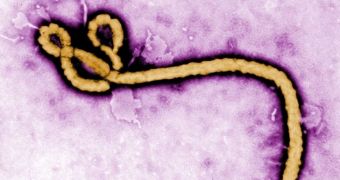Yesterday, the World Health Organization (WHO, for short) announced that, having discussed the matter during a meeting on August 11, it concluded that it was ethical to use experimental treatment against the Ebola virus disease.
Otherwise put, the World Health Organization believes that, given how many people this outbreak has until now killed, there is little choice left but to attempt fighting the virus using drugs that haven't yet been properly tested in clinical trials.
Since specialists have not until now had the chance to thoroughly assess the pros and cons of administering these treatments against the Ebola virus, some of the patients receiving the drugs might experience severe side effects.
Still, it looks like specialists with the World Health Organization are quite convinced that, whatever side effects might result from the use of these treatments, there is no way that they can be as awful as letting the Ebola virus disease run its course.
For those who haven't yet figured it out, this means that the Organization was not lying when it said that the ongoing Ebola outbreak in West Africa was a threat to international health and the worst of its kind to have ever been recorded.
In other words, you know that things are bad when one the world's leading health agency okays experimental treatments and drugs whose side effects and even efficiency it knows nothing about simply because nothing can be worse than letting a disease go about its business unhindered.
“The large number of people affected by the 2014 west Africa outbreak, and the high case-fatality rate, have prompted calls to use investigational medical interventions to try to save the lives of patients and to curb the epidemic,” the Organization says.
“In the particular circumstances of this outbreak, and provided certain conditions are met, the panel reached consensus that it is ethical to offer unproven interventions with as yet unknown efficacy and adverse effects, as potential treatment or prevention,” it adds.
Mind you, Ebola virus disease patients will not simply be made to gulp down one experimental drug or another. On the contrary, the World Health Organization stresses that all experimental treatments will be administered following very strict procedures.
Thus, doctors will have to obtain a patient's informed consent before presenting them with a drug. Freedom of choice, transparency about all aspects of care, confidentiality, respect for the person, preservation of dignity, and involvement of the community will also be in focus.
Word has it that two Liberian doctors will be the first Africans to be administered an experimental drug intended to treat Ebola virus disease. This drug is dubbed ZMapp and is made by Mapp Biopharmaceutical of San Diego, California. It has until now been used to treat two US health workers, Nature informs.
The bad news is that, even if ZMapp does work against the Ebola virus disease, it appears that, once the two Liberian doctors receive this treatment, existing supplies of this drug will be exhausted. What's more, Mapp Biopharmaceuticals says that it will be at least a few months before it can roll out a new batch. Simply put, it's still unclear how the outbreak in West Africa will be contained.

 14 DAY TRIAL //
14 DAY TRIAL //